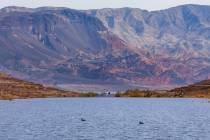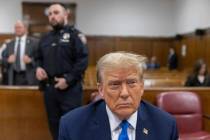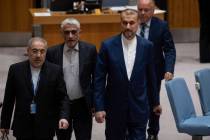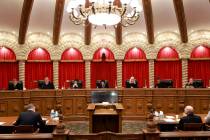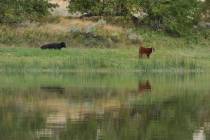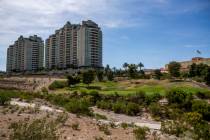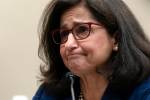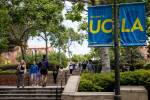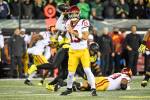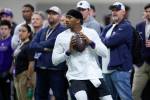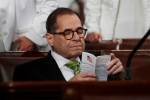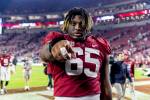Critics beset UNLV bias policy
A draft of a proposed UNLV policy aimed at preventing bias and hate crimes was declared dead Monday by the university system chancellor after a public outcry.
The policy on "bias incidents and hate crimes" would allow those who feel intimidated by what someone else says to report the incident to the police, who then would be obligated to investigate.
"Bias? How in the hell are you going to define bias?" Chancellor Jim Rogers said.
Though Rogers does not have the power to kill the policy outright -- that would be up to the elected Board of Regents -- his complaints echo those of others.
The American Civil Liberties Union of Nevada has come out against the policy as drafted, as have several faculty members.
Nasser Daneshvary, the immediate past president of the faculty senate, said faculty members often have voiced their concern during the writing of the policy over the "bias incident" portion.
"Finally," he said Monday, "somebody listened."
University of Nevada, Las Vegas President David Ashley stressed, however, that the policy is and always has been "a work in progress."
Asked whether there was a chance that offending portions would be rewritten, he said: "There's more than a chance. Having looked at the faculty feedback, there are some serious concerns."
The policy, set to go into effect July 1, was written in response to a directive from the Board of Regents. The board last summer required all of the state's universities and colleges to adopt hate crimes policies.
All of the institutions but UNLV already have adopted their own policies.
A draft of UNLV's policy came to the attention of the ACLU recently when a faculty member contacted the group.
Allen Lichtenstein, the group's general counsel, flatly declared the policy draft unconstitutional.
"It tends to treat as illegal speech that is clearly constitutionally protected," he said.
"It certainly gives the impression that, if someone feels insulted, they should go to the police."
The policy takes great pains to declare that it is not a "speech code," that it does not criminalize bias and that it does not impinge upon freedom.
But critics contend that, as written, it is indeed a speech code, that it sics the police on violators and that its provisions would scare people away from speaking honestly and openly.
In the 1990s, similar controversies were common on the nation's campuses, but they have died down in recent years.
"They have been routinely struck down by the courts as violations of the First Amendment," Lichtenstein said. "It is a bit surprising to see something like this at this particular time."
Board of Regents Chairman Michael Wixom said he had not yet seen the policy draft, but he had read about it in the media.
"I do have concerns over the way this is developing," he said. "We're going to take a close look at the policy."
Ashley said that he had talked to Rogers on Monday about his concerns and was going to appoint a four-member task force to redraft the policy.
Ashley said he was committed to finishing the policy soon so that it could be approved by the regents and implemented July 1.
He said he will accept the offer of help from the ACLU. The university will submit the final version for the group's review, he said.
The draft of the policy does the following:
• Encourages the use of an "informal process" to resolve complaints. The process encourages discussion or the reporting of offenses of bias to a supervisor.
• Encourages formal reporting to UNLV police, who are then obligated to investigate.
• Says false reporting may be punished.
It defines bias incidents as verbal, written or physical acts that intimidate, interfere or harass based at least partly on bias against race, ethnicity, color, religion, creed, sex (including a "pregnancy related condition"), sexual orientation, national origin, military status, disability, age, marital status, physical appearance or political affiliation.
Christine Clark, UNLV's vice president of diversity and inclusion, one of the policy's main authors, did not return a phone message left Monday.
Contact reporter Richard Lake at rlake@reviewjournal.com or 702-383-0307.









